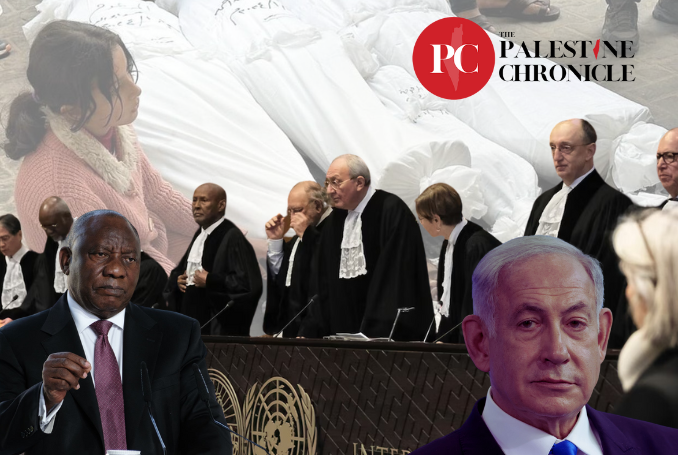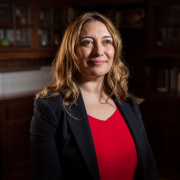By Romana Rubeo
 South Africa's case against Israel is being held in The Hague. (Image: Palestine Chronicle)
South Africa's case against Israel is being held in The Hague. (Image: Palestine Chronicle)
To understand the ruling from a legal perspective, The Palestine Chronicle sought the opinion of Dr. Triestino Mariniello, Professor of Law at Liverpool John Moores University.
Finally, the much-anticipated ruling by the International Court of Justice was delivered in The Hague on Friday, January 26.
The ruling was read by Joan Donoghue in her capacity as the current president of the ICJ.
Though the verdict refrained from calling for a ceasefire, it mostly satisfied all of South Africa’s demands while rejecting Israel’s call for dismissing the case on the basis that it falls out of the ICJ’s jurisdiction.
The ICJ’s ruling, which was accepted unanimously – save the Ugandan and Israeli judges – is considered historic by some, as it places Israel, for the first time in its history, in the position of the accused, namely of carrying out the crime of genocide.
The ICJ’s ruling was predicated on Article 2 of the Convention on the Prevention and Punishment of the Crime of Genocide, thus recognizing the Palestinian people as a distinct group, facing the crime of genocide.
To understand the ruling from a legal perspective, The Palestine Chronicle sought the opinion of Dr. Triestino Mariniello, Professor of Law at Liverpool John Moores University. Dr. Mariniello is also a member of the legal team for Gaza victims at the International Criminal Court (ICC).
Why is the ICJ ruling today important?
“It is a striking, historic decision.
All of South Africa’s allegations in relation to the definition of genocide have been accepted by the Court. Consequently, all points of Israel’s statement of defense have been rejected.
For example, the claim by Israel that Israel has done anything in its power to alleviate the suffering of the civilian population in Gaza.
The Court has rejected Israel’s attempt at downplaying Israeli officials’ genocidal statements, which prove the genocidal intent. Indeed, several statements, including that of Israeli Defense Minister Yoav Gallant and Israeli President Isaac Herzog, have been cited and read by the President.
What should we expect as a result of this ruling?
I think this is a historic decision because for the first time, it puts an end to Israel’s impunity.
There will be medium and long-term effects, some of which are difficult to foresee now. For example, on the weapons exchange by arms companies and states to Israel. There could be more cases of universal jurisdiction, similar to the one initiated against Herzog in Switzerland.
I also highly doubt that the International Criminal Court (ICC) can ignore the importance of such a ruling.
Will the ruling lead to a ceasefire in Gaza?
I partially understand the frustration for not directly calling for a ceasefire. However, the Court says that Israel shall take ‘all measures within its power to prevent the commission of all acts within the scope of Article II of the Genocide Convention, in particular: killing of members of the group; causing serious bodily or mental harm to members of the group; deliberately inflicting on the group conditions of life calculated to bring about its physical destruction in whole or in part.”
In other words, the provisional measures imply a permanent ceasefire.
(The Palestine Chronicle)

– Romana Rubeo is an Italian writer and the managing editor of The Palestine Chronicle. Her articles appeared in many online newspapers and academic journals. She holds a Master’s Degree in Foreign Languages and Literature and specializes in audio-visual and journalism translation.

No comments:
Post a Comment